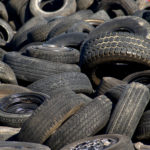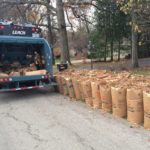2014 Summer
Water Quality:
Water is the foundation for everything we do throughout life. It is of course needed for human existence but also used for recreation and economic development. However, not much of the water on the Earth is fit for consumption. Ninety seven percent of the Earth’s water is salt water, while the rest is frozen in glaciers or polluted. In fact, 780 million people or one in nine, lack access to clean water. We are fortunate to live near the Great Lakes, which is the largest group of fresh water lakes on the planet and represent 84% of North America’s surface fresh water. Therefore, we all need to do our part to improve the water quality of our creeks and streams which are the capillaries to these great bodies of water. Proper maintenance, responsible use of fertilizers and correct waste disposal are just a few solutions to keep our creeks and streams clean. Please find more information at www.elpc.org/category/natural-places/great-lakes-protection or www.inillinoiswater.org/.
Storm Cleanup:
It seems that during the summer months we either experience a lengthy drought, intense rainfalls that create flooding or strong winds that cause downed trees. After these powerful storms pass and roadways have been cleared, Palatine Township road crews are dispatched to clean-up and collect storm damage from private properties. If you live in the INCORPORATED areas of Palatine, Inverness or Rolling Meadows, call your municipality as they will schedule a pick up based on the extent of damage. If you experience a downed tree due to a storm event and live in the UNICORPORATED area, please call 847.358.6336 to schedule a pickup. We will only collect storm damage if the debris has been placed with branch or cut side facing the edge of the street. If you have small brush or branches, please tie them with twine in bundles 4 ft. or less in length and 2 ft. or less in diameter. By doing so, they will be more manageable for disposal and we will be able to assist your neighbors more effectively and efficiently. Additionally, for your gardening use, we will continue to have compost (aged ground up yard waste) available for pick-up at the Road District facility, located at: 530 N. Smith Street, Palatine.
Small Stream Maintenance:
Floodplains are defined as any area that floods as a result of a specific type of storm, most commonly a 100 year storm event. This storm event is not simply defined as a storm that occurs within 100 years, rather it is a probability description. In essence, a 100 year storm event has a 1% chance of occurring in any given year while a 50 year storm event has a 2% chance and a 10 year storm has a 10% chance. A more detailed explanation can be found at http://water.usgs.gov/edu/100yearflood.html. As a matter of fact, the Chicagoland area may experience multiple 100 year storm events within one year. In order to qualify as a 100 year storm event our area must receive approximately 7.5 inches of rain with a 24 hour time period. It also qualifies if we receive approximately 4.5 inches within 2 hours, or 2.8 inches within 30 minutes. All this rain eventually collects in our streams and rivers, which when filled with debris or downed trees may cause flooding. To reduce flooding in urbanized areas through immediate and relatively simple remedies is the mission statement of the Small Streams Maintenance Program (SSMP) of the Metropolitan Water Reclamation District of Greater Chicago (MWRD). Since it began in 2006, dedicated crews have provided a valuable service by removing debris from creeks, streams and waterways. The success of the SSMP depends on cooperation and coordination among all communities to efficiently & respectfully manage the waterways. If you may find downed trees or debris within the waterway please contact us at 847.358.6336 and we will coordinate with the SSMP for cleanup.

